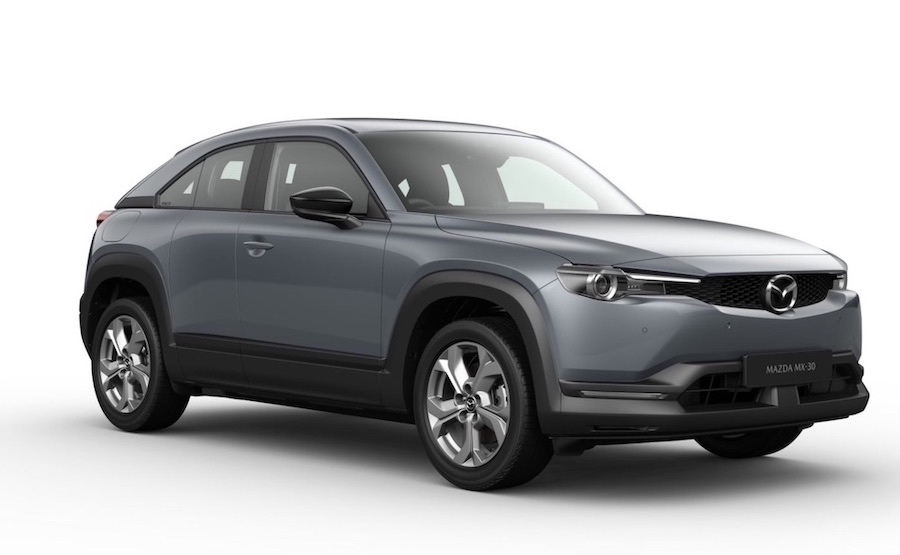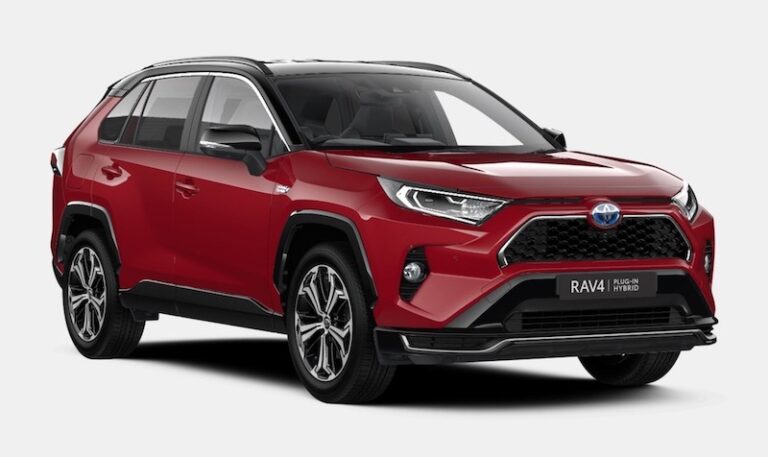Overview
The Mazda Motor Corporation, more commonly known simply as Mazda, is a leading Japanese automotive manufacturer, with business activities across a number of key international markets. Mazda was founded in 1920, initially as a cork-making factory (Toyo Cork Kogyo Co, Ltd.). The company started manufacturing vehicles in 1931. The ‘Mazda-go’, a tricycle truck, was the first vehicle to be manufactured by the company. Mazda derives its name from ‘Ahura Mazda’, the God of harmony, intelligence and wisdom.
US based Ford Motor Company owned a stake in Mazda during a time Mazda was undergoing financial difficulties. Ford acquired a 24.5% stake in Mazda in 1974, increasing their stake to 33.4% in 1980. The Ford-Mazda partnership did result in a number of successful initiatives. Though the partnership formally ended in 2014, Ford started selling down its stake in Mazda from 2008.
Mazda has conducted research on alternative fuel vehicles for many decades. The company has had a particular focus on hydrogen-powered vehicles. The Mazda electric vehicle (EV) portfolio includes both, battery-electric vehicle (BEV) and plug-in hybrid electric vehicle (PHEV) models:
- All-electric Mazda MX-30 SUV
- Mazda CX-60 plug-in hybrid
- Mazda CX-80 plug-in hybrid
- Mazda MX-30 R-EV plug-in hybrid
Electric Cars: The Basics
For those of you new to zero-emission electric driving, we recommend a read of the following articles:
Sign up to the e-zoomed Electric Living newsletter
The Mazda MX-30 Electric SUV
The all-electric Mazda MX-30 crossover SUV, is the first production battery-electric vehicle (BEV) from Mazda. The pure electric compact SUV was unveiled at the 2019 Tokyo Motor Show. The Mazda electric vehicle (EV) has been positioned for the urban driver, with the Japanese automotive manufacturer following a very similar ethos to Honda-e, in keeping the EV battery size small. Both the Mazda MX-30 and Honda-e use a 35.5 kWh lithium-ion EV battery.
Mazda is unique, in that, one of the key determinants of the EV battery size was the ‘life-cycle’ environmental impact. According to Mazda, the smaller battery pack has a more positive environmental footprint, challenging some of the conventional wisdom in the electric vehicle sector, with automotive manufacturers aspiring for large EV batteries with longer zero-emission electric range.
In our view, electric cars that are offered in different EV battery size options are best positioned for the long-term. A choice of battery options widens the consumer base, to include, city drivers and longer distance motorway drivers.
The Mazda electric vehicle is positioned for the young urban commuter and its 35.5 kWh battery size reflects the shorter city commutes. Mazda claims an emission-free electric range up to 124 miles (WLTP). Of course, the real-world range will be lower, and realistically the EV will deliver just over 100 miles.
However, given the positioning of the compact crossover i.e. city dwellers, a 100+ miles pure electric range is more than sufficient. Do keep in mind that the average commute in the UK is a mere 12 miles and the average distance covered 30 miles. Urban day-to-day needs, will require far less range i.e. local grocery store, high street, school run etc!
In general, we do recommend a topping up approach to charging an electric car. This way, there is always sufficient range available and the time for charging is reduced. Moreover, charging an electric car on a regular basis is good for the long-term maintenance of the EV battery. Mazda offers a 8 years or 100,000 miles warranty.
The EV offers DC charging up to 50 kW, which is more than sufficient, given the size of the onboard EV battery. The electric car can be charged up to 80% in 26 minutes. Just enough time for a coffee and short motorway break.
The MX-30 e-SUV incorporates a 6.46 kW AC (1-phase) onboard charger. This again is appropriate, given that most homes in the UK are powered by single-phase power supply. The EV battery can be charged up to 80% in 3 hours via a dedicated single-phase home EV charging station like zappi.
We discourage the use of a domestic 3-PIN plug for charging an electric car. The EV will take up to 9 hours and 30 minutes to charge up to 80% via a standard domestic socket!
In terms of performance, the front-wheel drive Mazda MX-30 delivers 0-62 mph in 9.7 seconds, with a 87 mph top speed (maximum power: 145 PS/ torque: 271 Nm). The electric car also benefits from instant torque. The pure electric MX-30 comes with 5 driving modes.
Mazda has made it a point to emphasise the key environmental credentials of EV. The company has opted for low-impact and sustainable materials for the inside cabin, to include, recycled plastic bottles and cork harvested from the bark of trees without felling. This is a trend gaining momentum among automotive manufacturers to deliver on improved life-cycle environmental footprint.
In terms of technology and safety features, depending on the trim, the EV offers: 7” touch-screen for climate control settings, 7” TFT instrument cluster display, Apple CarPlay, Android Auto, blind spot monitoring, driver attention alert, emergency lane-keeping, intelligent speed assist, traffic sign recognition, reversing camera, head-up display, Mazda radar cruise control and more.
The e-SUV has been designed for the urban environment, and this certainly has impacted the internal cabin space. For rear seat passenger, the legroom and headroom is limited. Moreover, due to the ‘BMWi3’ type door configuration, gaining access to the rear seats is not as easy as a more traditional four-door vehicle. The EV has a 350 L boot.
The EV is suitable for both families and company-car drivers. Company-car drivers can take advantage of the lower Benefit-in-Kind (BiK) tax rate for electric cars. Bottom-line, electric driving is good for the environment and the wallet.
You can lease electric vehicles (EVs) via e-zoomed at very competitive prices!
| PROS | CONS |
|---|---|
| An affordable compact electric SUV | Limited electric range and small EV battery |
| Well suited for city driving needs | Access to rear seats not easy. Limited legroom, headroom for rear seats and small boot space |
| Low-impact and sustainable materials for the inside cabin | Only available as front-wheel drive |
The Mazda MX-30 Electric SUV (credit: Mazda)
| At A Glance | |
|---|---|
| EV Type: | Battery-Electric Vehicle (BEV) |
| Body Type: | SUV (Compact Crossover) |
| Plug-In Car Grant (PiCG): | Not Available |
| Engine: | Electric |
| Available In UK: | Yes |
| £ Variants (3 Options) |
|---|
| Mazda MX-30 Prime-Line (from £30,050) |
| Mazda MX-30 Exclusive-Line (from £31,950) |
| Mazda MX-30 Makoto (from £34,350) |
| EV Battery & Emissions | |
|---|---|
| EV Battery Type: | Lithium-ion |
| EV Battery Capacity: | Available in one battery size: 35.5 kWh |
| Charging: | 50 kW DC Rapid Charging (20%-80%: 26 mins). Onboard charger: 6.6 kW AC (20%-80%: 3 hours) |
| Charge Port: | Type 2 |
| EV Cable Type: | Type 2 |
| Tailpipe Emissions: | 0g (CO2/km) |
| EV Battery Warranty: | 8 years or 100,000 miles |
| £ Average Cost Of Residential Charging | |
|---|---|
| Battery net capacity : 16.7 kWh | £2.40 |
| Battery net capacity : 30.0 kWh | £4.32 |
| Battery net capacity : 39.2 kWh | £5.64 |
| Battery net capacity : 45.0 kWh | £6.48 |
| Battery net capacity : 50.0 kWh | £7.20 |
| Battery net capacity : 64.0 kWh | £9.22 |
| Battery net capacity : 71.0 kWh | £10.22 |
| Battery net capacity : 77.0 kWh | £11.09 |
| Battery net capacity : 90.0 kWh | £12.96 |
| Battery net capacity : 100.0 kWh | £14.40 |
- Note 1: The average cost of residential electricity in the UK varies depending on the region, supplier and type of energy used. An average for the UK is 14.40 p/kWh.
- Note 2: Not all EV manufactures make available the data on net EV battery capacity, and in a number of instances the EV battery capacity advertised, does not state if it is gross or net capacity. In general, usable EV battery capacity is between 85% to 95% of the gross available capacity.
| Charging Times (Overview) | |
|---|---|
| Slow charging AC (3 kW – 3.6 kW): | 6 – 12 hours (dependent on size of EV battery & SOC) |
| Fast charging AC (7 kW – 22 kW): | 3 – 8 hours (dependent on size of EV battery & SoC) |
| Rapid charging AC (43 kW): | 0-80%: 20 mins to 60 mins (dependent on size of EV battery & SoC) |
| Rapid charging DC (50 kW+): | 0-80%: 20 mins to 60 mins (dependent on size of EV battery & SoC) |
| Ultra rapid charging DC (150 kW+): | 0-80% : 20 mins to 40 mins (dependent on size of EV battery & SoC) |
| Tesla Supercharger (120 kW – 250 kW): | 0-80%: up to 25 mins (dependent on size of EV battery & SoC) |
- Note 1: SoC: state of charge
| Dimensions | |
|---|---|
| Height (mm): | 1555 |
| Width (mm): | 1795 |
| Length (mm): | 4395 |
| Wheelbase (mm): | 2655 |
| Turning Circle (m): | 11.4 |
| Boot Space (L): | 350 |
| e-SKYACTIV EV | |
|---|---|
| EV Battery Capacity: | 35.5 kWh |
| Pure Electric Range (WLTP): | 124 miles |
| Electric Energy Consumption (kWh/100km): | 19.0 |
| Charging: | 50 kW DC Rapid Charging (20%-80%: 26 mins). Onboard charger: 6.6 kW AC (20%-80%: 3 hours) |
| Top Speed: | 87 mph |
| 0-62 mph: | 9.7 seconds |
| Drive: | Front-wheel drive (FWD) |
| Electric Motor (kW): | 107 |
| Max Power (PS): | 145 |
| Torque (Nm): | 271 |
| Transmission: | Automatic |
| Seats: | 5 |
| Doors: | 5 |
| Kerb Weight (kg): | 1,750 |
| Colours: | 5 |
| NCAP Safety Rating: | Five-Star |
While e-zoomed uses reasonable efforts to provide accurate and up-to-date information, some of the information provided is gathered from third parties and has not been independently verified by e-zoomed. While the information from the third party sources is believed to be reliable, no warranty, express or implied, is made by e-zoomed regarding the accuracy, adequacy, completeness, legality, reliability or usefulness of any information. This disclaimer applies to both isolated and aggregate uses of this information.









































